Moringa Tea Recipe (Using Fresh Leaves or Powder)
Learn how to make Moringa Tea using fresh leaves or moringa leaf powder to create a nutritious and refreshing beverage. This is a superfood tea that also tastes great.
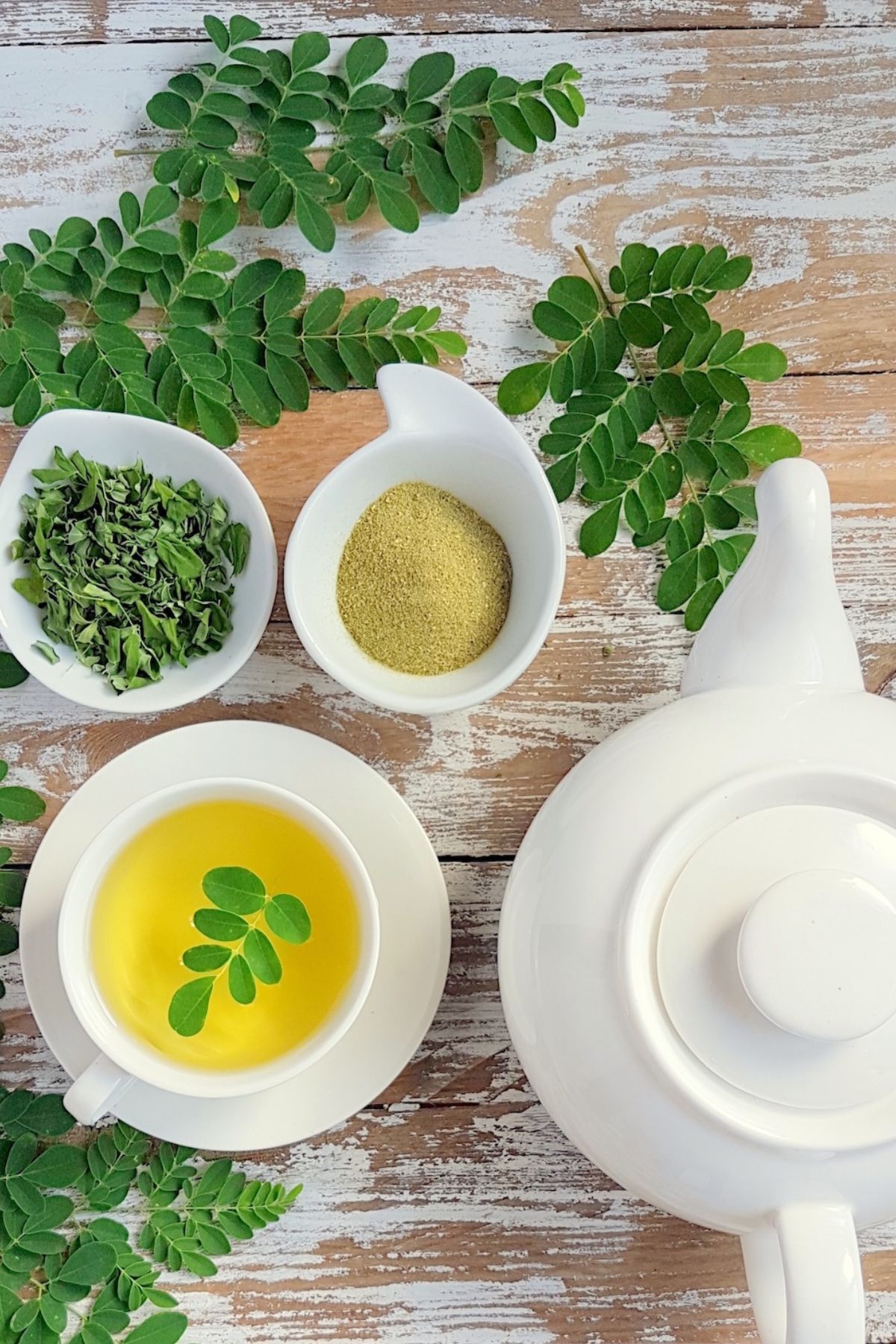
Moringa is a superfood packed with vitamins and antioxidants, but it’s not very well-known in the United States or the Western World.
The moringa plant (moringa oleifera), native to parts of Africa and Asia, is known for its slender, drooping branches and small, rounded leaves. The plant can also grow into a moringa tree, sometimes called a drumstick tree or a miracle tree!
It is highly valued for both its nutritional and medicinal properties, with every part of the plant being used for food or traditional medicine. I first came across it at a farmers’ market and was impressed by its pretty leaves. If you can’t find fresh moringa leaves to make this herbal tea recipe, you can easily purchase moringa powder online.
Let me show you how to make Moringa Tea using fresh leaves or moringa powder. It’s caffeine-free and is one of those very nutrient rich foods. Or, try making a Moringa Powder Smoothie!
Moringa Tea Benefits
1. Rich in Nutrients
Moringa tea is a powerhouse of essential vitamins and minerals, including vitamins A, C, E, calcium, and potassium, which contribute to overall health and wellness.
Although it has no caffeine, it may help increase energy levels, along with providing you with essential nutrients and a range of health benefits.
See my related review of “Is Arizona Green Tea Healthy?“
2. Antioxidant Properties
The high antioxidant content in moringa helps in combating oxidative stress and reducing inflammation, potentially offering protective benefits against chronic diseases including heart disease.
3. Versatile and Easy to Make
This recipe’s flexibility to use either fresh leaves or powder makes it accessible and easy to prepare, offering a healthy beverage option for daily consumption.
Recipe Steps
Step One
If using fresh leaves for your moringa tea recipe, rinse them thoroughly under running water. Bring two cups of water to a boil.
Step Two
Add the fresh moringa leaves to the boiling water.
Reduce the heat and simmer for about 5 minutes.
Step Three
Remove from heat and strain the tea into a cup, discarding the leaves.
If using moringa powder, heat one cup of water until hot, but not boiling.
Place the moringa powder in a cup (you’ll need about one teaspoon of moringa powder per serving of one cup of moringa tea). Pour the hot water over the powder and stir well.
Step Four
Add honey or lemon to taste and serve warm. Or, you can chill the tea and serve it with ice for moringa iced tea.
Moringa Tea Recipe Tips
- You can easily double or even triple this recipe to increase servings.
- The tea is not sweet on its own. It’s not as strong as green tea, but you will probably want to sweeten it with maple syrup or honey.
Recipe FAQs
Moringa tea is rich in vitamins A, C, and E, and contains essential minerals like calcium and potassium. It’s known for its antioxidant properties, which help in reducing inflammation and may protect against certain chronic diseases.
Moringa tea can be consumed daily as part of a balanced diet. However, it’s important to consume it in moderation. While generally safe, excessive consumption may lead to side effects like nausea or indigestion, especially in those with sensitive stomachs.
Moringa tea can be made using either fresh leaves or powdered moringa, steeped in hot water. It has a mild, earthy flavor that can be enhanced with honey, lemon, or other natural sweeteners and flavors for a more personalized taste.
The use of pesticides on moringa plants can vary depending on the region where they are grown and the agricultural practices of the farmers. In some areas, especially where moringa is cultivated on a large scale for commercial purposes, pesticides may be used to protect the plants from pests and diseases. I would recommend purchasing organic moringa to avoid any pesticides.
More Healthy Tea Recipes You Might Like
Don’t Miss These Antioxidant-Rich Drinks!
I hope you make this recipe! If you do, please leave a comment and a starred review below.
And, consider following me on social media so we can stay connected. I’m on Facebook, Pinterest, Instagram, and YouTube!
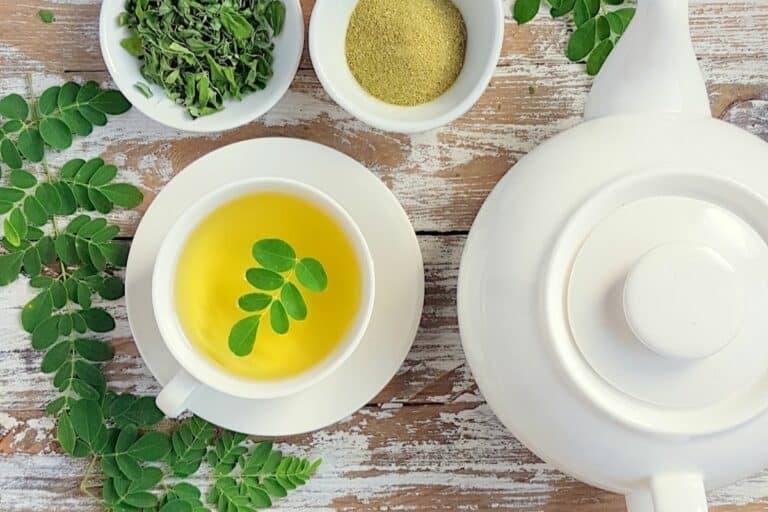
Moringa Tea Recipe (Using Fresh Leaves or Powder)
Learn how to make Moringa Tea using fresh leaves or powder to create a nutritious and refreshing beverage. This is a superfood tea that also tastes great. This recipe uses either fresh moringa leaves or moringa powder.
- Total Time: 10 Minutes
- Yield: 1 Serving
Ingredients
- 1 cup of fresh moringa leaves or 1 teaspoon of moringa powder
- 2 cups of water (for leaves) or 1 cup of hot water (for powder)
- 1/2 lemon (optional, for added flavor)
- 1 teaspoon honey (optional, for sweetness)
Instructions
- Fresh leaves: If using fresh leaves, rinse them thoroughly under running water. Bring two cups of water to a boil. Add the fresh moringa leaves to the boiling water. Reduce the heat and simmer for about 5 minutes. Remove from heat and strain the tea into a cup, discarding the leaves.
- Powder: If using powder, heat one cup of water until hot, but not boiling. Place the moringa powder in a cup. Pour the hot water over the powder and stir well.
- Add honey or lemon to taste, if desired. Enjoy the moringa tea warm, or allow it to cool down for an iced version.
Notes
- You can easily double or even triple this recipe to increase servings.
- Prep Time: 5 Minutes
- Cook Time: 5 Minutes
- Category: Beverages
- Method: Stovetop
- Cuisine: Healthy
- Diet: Gluten Free
Nutrition
- Serving Size: 8 ounces
- Calories: 0
- Sugar: 0 g
- Sodium: 18.3 mg
- Fat: 0 g
- Saturated Fat: 0 g
- Carbohydrates: 0 g
- Fiber: 0 g
- Protein: 0 g
- Cholesterol: 0 mg
Don’t forget to join my newsletter list to get exclusive clean eating recipes and tips. The newsletter is 100% free with no spam; unsubscribe anytime.
About the Author: Carrie Forrest has a master’s degree in public health with a specialty in nutrition and is a certified holistic nutritionist. She is a top wellness and food blogger with over 5 million annual visitors to her site. Carrie has an incredible story of recovery from chronic illness and is passionate about helping other women transform their health. Send her a message through her contact form.
Note: this post is for informational purposes only and is not intended as medical advice. Please consult your healthcare provider for recommendations related to your individual situation.


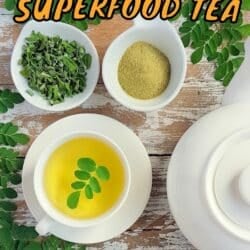
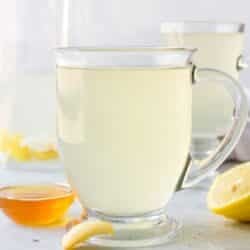





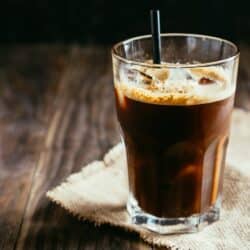
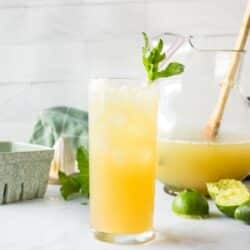
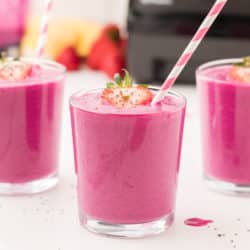
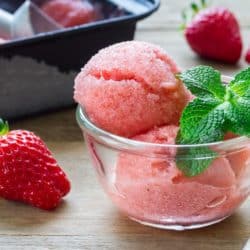








Such a lovely tea that is SO healthy! I like it better than green tea!